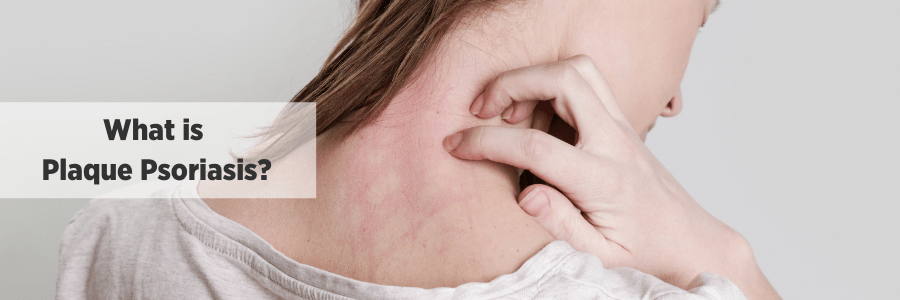Causes of Plaque Psoriasis
The exact cause of plaque psoriasis is unknown, but it is believed to be an autoimmune disease. This means that the immune system mistakes healthy cells for foreign invaders and attacks them. This attack causes inflammation and the rapid growth of skin cells, which leads to the formation of plaques.
Symptoms of Plaque Psoriasis
The most common symptoms of plaque psoriasis include:
- Thick, red patches of raised skin covered with silvery scales
- Dry, itchy skin
- Burning or stinging sensation
- Painful or cracked skin
- Scalp psoriasis, which can cause thick, scaly patches on the scalp, hairline, and behind the ears
- Nail psoriasis, which can cause pitting, discoloration, and thickening of the nails
Triggers of Plaque Psoriasis
There are a number of things that can trigger plaque psoriasis flares, including:
- Stress
- Infection
- Injury
- Certain medications
- Smoking
- Alcohol
- Dry weather
- Extreme temperatures
Treatment for Plaque Psoriasis
There is no cure for plaque psoriasis, but there are a number of treatments that can help to manage the symptoms and improve the appearance of the skin. Treatment options include:
- Topical treatments: These medications are applied directly to the skin and include corticosteroids, retinoids, vitamin D analogues, and coal tar.
- Phototherapy: This treatment uses ultraviolet (UV) light to slow the growth of skin cells and reduce inflammation.
- Systemic medications: These medications are taken by mouth or injection and work throughout the body. They include biologics, which target specific parts of the immune system.
Self-Care Tips for Plaque Psoriasis
In addition to medical treatments, there are a number of things that people with plaque psoriasis can do to manage their condition at home. These include:
- Bathing regularly and using a mild soap
- Moisturizing the skin regularly
- Avoiding scratching the plaques
- Covering the plaques with clothing to protect them from the sun and other irritants
- Managing stress
- Eating a healthy diet
- Quitting smoking and limiting alcohol consumption
Living with Plaque Psoriasis
Plaque psoriasis can be a challenging condition to live with, but it is important to remember that you are not alone. There are millions of people around the world who live with psoriasis, and there are a number of treatments and support resources available. With proper management, you can lead a full and active life.
Here are some additional tips for living with plaque psoriasis:
- Talk to your doctor about your treatment options and develop a plan that is right for you.
- Find a support group or online community where you can connect with other people who have psoriasis.
- Educate yourself about the condition and its triggers.
- Be patient and persistent with your treatment. It may take some time to find the right approach for you.
- Don’t let psoriasis define you. You are more than your condition.
Conclusion
Plaque psoriasis is a chronic autoimmune disease that can cause thick, red patches of raised skin covered with silvery scales. The condition can be challenging to live with, but there are a number of treatments and support resources available. With proper management, people with plaque psoriasis can lead full and active lives.
Visit the website and more information: Fuseinfusion.com

